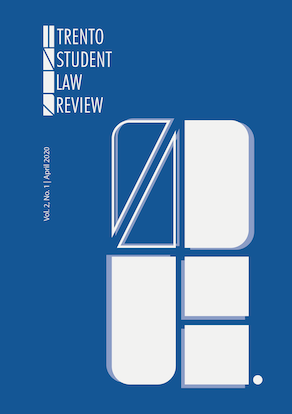The Judicial Dialogue in the CJEU and the Fake Contradiction of the Taricco Saga
DOI:
https://doi.org/10.15168/tslr.v2i1.585Keywords:
EU law, Constitutional law, Judicial dialogue, Supremacy, EffectivenessAbstract
Although initially the CJEU left no space for the inclusion of national issues in order to establish the founding qualities of EU legal order, such as supremacy and direct effect, more recently the Court has developed a trend towards taking into account the protection of national fundamental rights and constitutional provisions by using EU primary legislation. The new approach adopted by the Luxembourg Court is fostering the judicial dialogue with the national constitutional courts. The aim of the paper is to demonstrate that the "Taricco Saga" represents the last step of this pathway by fitting the qualities of EU legal order in the peculiarity of national legal systems not as national exception but as an issue of European law through concepts like "common constitutional principles". Commenting the features of Taricco II, in particular, it will be demonstrated that this ruling does not contradict Taricco I but, rather, it represents a specification of the interpretation of article 325 TFEU that encompasses also the acknowledgment of an issue linked to the principle of legality, as intended by the constitutional traditions of EU.Downloads
Published
30.04.2020
How to Cite
Carelli, Francesco. 2020. “The Judicial Dialogue in the CJEU and the Fake Contradiction of the Taricco Saga”. Trento Student Law Review 2 (1). Trento, Italy:37-56. https://doi.org/10.15168/tslr.v2i1.585.
Issue
Section
Articles
License
The copyright on the texts published in the Trento Student Law Review remains with the respective owners. The journal allows authors to retain publishing rights without restrictions.
The Trento Student Law Review is distributed under a Creative Commons license Attribution - Noncommercial - Share-alike 4.0 International (CC BY-NC-SA 4.0).





